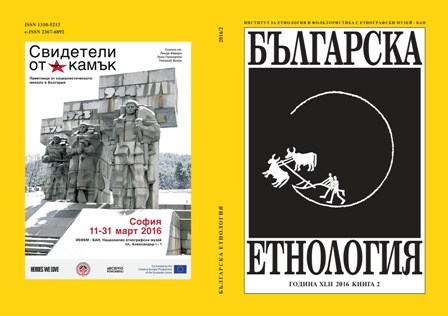
We kindly inform you that, as long as the subject affiliation of our 300.000+ articles is in progress, you might get unsufficient or no results on your third level or second level search. In this case, please broaden your search criteria.

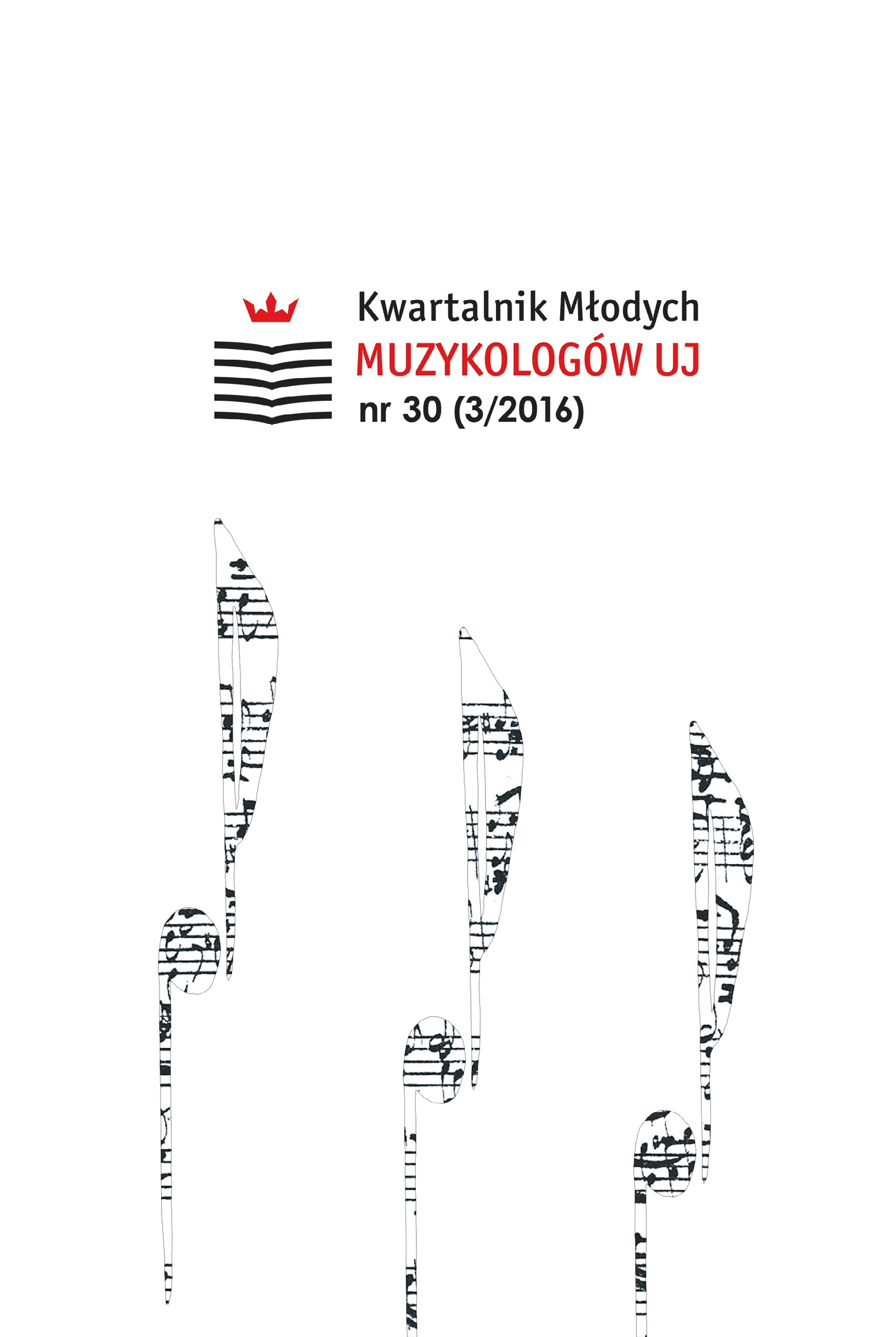
The culture of Georgian chant is variable and particular schools are different from each other. The vital schools are Gelati, Shemoqmedi (West Georgian chant traditions) and Karbelashvilebi (East Georgian chant traditions). The paper presents musical analysis of West Georgian chant traditions, using Gelati school as an example. Scores are taken from Georgian musical manuscripts from the 19th century, which are saved in National Centre of Manuscripts and were written by St. Pilimon the Chanter (Koridze) and St. Ekvtime the Confessor (Kereselidze). The article’s aim is to show how some of the Great Feasts in Georgia were celebrated. The first part contains the examination of some individual aspects of Georgian liturgical practice. The second part synthetises what is important in the process of researching Georgian chant. The analysis shows individuality of the chant material. Diversity and abundance of existing materials gives the opportunity to conduct further research on the topic.
More...
The main structure of policy of European community with Asia forms the relations with Turkic countries of Central Asia. This qreat interest is closely connected with the strategic imporatance of the region on one hand, on the other hand with the concrete economic policy (energy) of European community. The cooperation between European community and the Turkic countries of Central Asia Can be distinguished into three main periods. 1) 1992-1995- years are characterized with the beginning of bilateral coorperation and determination of principal priorities of collaboration. Specially in this period, Commission of Europe accepted the report on the subject the Strategy of European Union in relation with the countries of Central Asia. 2) The second period of 1997-2007-years begins with the signinq of partnership and cooperation treaty on february, 1996 between Kazakhstan, Kyrgyzstan, Uzbekistan and European community. In this period European Countries in Caspian – Caucasian energy field became stronger 3) The third period starts with the joint meetinq held by the representatives of the Republics of Central Asia and European community on june 30, 2007 in Berlin and the declaration of coorperation plan with the regional countries of the orqanization in 2007-2013. Accordinq to this plan, European community intended to contribute 750 million euro financial aid to the republics of Central Asia. In the above mentioned plan the main point is directed to economic problems, especially to energy policy in the region of European community. “TRASECA” is the principial project of European community in this region..
More...
At the result of the decline of the Soviet Union the role and perspectives of Turkey in Central Asia have changed. This was resulted with the end of Soviet danger, continued for the century, as well as joining to military-political processes of the region. The role of Turkey in Central Asia didn’t cast doubt on anybody from the beginning of 1990s. It got into the agenda national interests of turkey, ethnic and religious approach in the Central Asian policy of Turkey. The history of the Turkish state, its cultural, ethnic and linguistic unity with above mentioned region created large perspectives for this state as well. The essential of Turkey in Central Asia confronted with jealousy by such states as the USA, Russia, Iran, China and India. Since the beginning of XXI century, speaking frankly after September 11, 2001 all these states did their best to accurate their policy, related to this region. Namely this formed some dangers for the regional policy of Turkey as well. Especially beginning from 2000, Russia, Iran and China attempted to approach to one another, and this was against America and Pakistan. According to this, it’s obvious to create the Triple Alliance of “Russia-China-Iran” against the priority of the US and her allies. The establishment of Shank hay organization can be considered the sample of this alliance. Doubtless, to keep the healthy positions in Central Asia in such difficult circumstances is very vague and Turkey was waited for by struggle according to this situation. It is important to shape special determined relations with Central Asian countries in the context of struggle of the US, Russia and Iran for the region. Among these, above mentioned states, only Turkey has ethnic, linguistic and religious unity with the countries of the region. That’s why Turkey has more chance to create tight relations as well.
More...
The involvement of Poland in the activities of the international community for strengthening peace, security and stability in conflict-prone states and regions was one of significant elements of the foreign policy pursued after 1989. It assumed various forms, from diplomatic initiatives and activities, to the direct participation in international peacekeeping operations and stabilisation missions. The involvement of Poland in the activities of the international community for strengthening peace, security and stability in conflict-prone states and regions was one of significant elements of the foreign policy pursued after 1989. It assumed various forms, from diplomatic initiatives and activities, to the direct participation in international peacekeeping operations and stabilisation missions.
More...
This paper presents some remarks on the situation of Poland in NATO. The problem of ‘predictability’ is analysed on the basis of a simple scheme (system, its environment, their interactions). The geopolitical analysis of this dynamic model leads to the conclusion that the future cannot be described as highly predictable, although some long-term scenarios seem to be relatively plausible and may be used in the construction of more realistic global and national/regional strategies. The results of this analysis suggest global cooperation and regional integration.
More...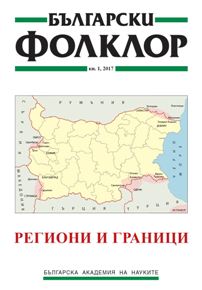
The paper explores the links between political magination and social memory in the sphere of everyday discourses. During a seven-week long multi-sited fieldwork in Stranja, a mountain region in the southeast corner of Bulgaria, references and allusions to politics were constantly slipping in humour, various other trivial situations and memories of the past. Using a sociolinguistic framework informed by Mikhail Bakhtin I analyse why and in what ways these utterances have ubiquitously infiltrated speech and argue that they reveal a lot about the non-collective and multidirectional character of memory. I discovered that nostalgic recollection, which in academic literature is often believed to be characteristic of European rural margins, is merely a fragment of a more complex mode of remembrance which poses a challenge to the notion that memory can be collective.
More...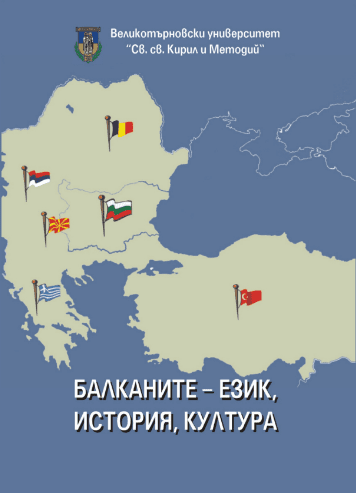
At the beginning of the 21st century, two parallel and opposing processes took place – integration into the Euro-Atlantic structures and Balkanization. They are the result of the desire of the countries in the region to improve their socio-economic development and the ambition of some of them to strengthen their recently found identity. Along with this, a number of typical regional problems will determine the future of the countries in the long term. The lost identity of the people leads to internal weakness, the influence of external factors, unemployment, decreasing birth rate, quality of education, and emigration – these are some of the problems which have their specifics in the region and are of interest to the present research.
More...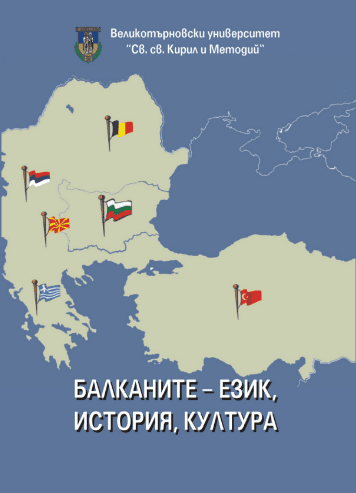
Industry remains a catalyst for progress and a driving force for our future. Today, it provides 50 million jobs in Europe, or 20% of the workforce, accounting for more than half of exports. The last quarter of the twentieth century was characterized by colossal qualitative changes in the development of productive forces, affecting the entire world economy. The leading industrial powers entered a new post-industrial stage of their development, also known as the “knowledge-based economy.” Entrepreneurial activity in the border regions of the most economically developed CEE countries contributes to the development of integration processes and to the integration activity of cross-border territorial production complexes.
More...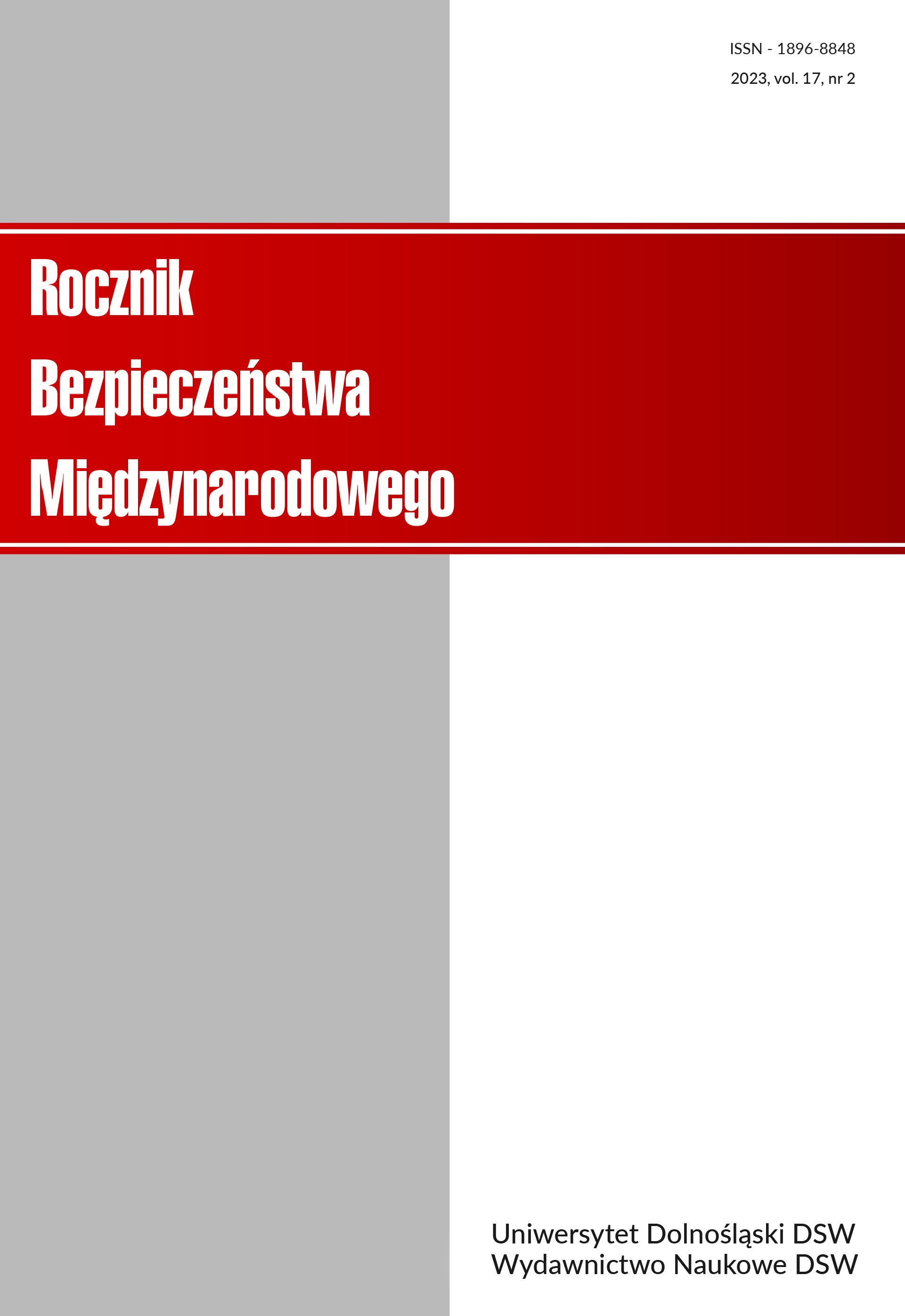
The article analyzes the functioning of Wrocław Airport SA in 2023 to examine its developmental condition after the regression caused by the pandemic. The analysis included individual segments of the offer for travellers, as well as ongoing and expected in the near future processes related to the development of airport infrastructure. The author relied on numerical data describing the above-mentioned activities, as well as referred them to trends and observable phenomena occurring today on the Polish and European civil aviation market. The research method was a comparative data analysis. The study showed that the Wroclaw airport, like most of the Polish passenger market, has returned to a growth path after a pandemic slump. The realization of airport infrastructure will also impact national and international security.
More...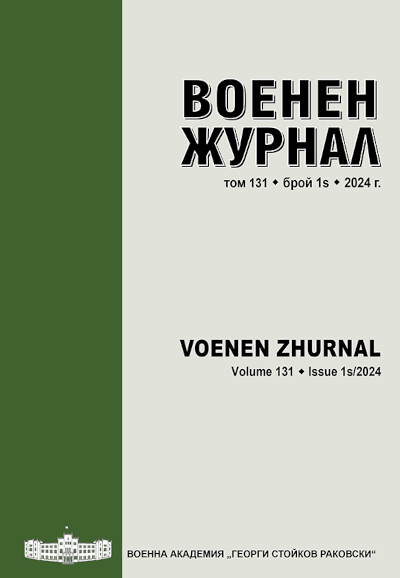
The report analyzes the main factors for the emergence and development of the concept of Eurasianism in the geopolitical space and ideological discourse of Turkey. For this purpose, publications reflecting the views of representatives of the Turkish political, academic and intellectual circles, in relation to Russia and the Turkic republics of Central Asia and the Caucasus, but also in relation to maritime policy and neighboring Greece and Cyprus, were analyzed. The main argument of the article in this regard is that the concepts of Eurasianism and Neo-Eurasianism have an impact on the formation of Turkey‘s geopolitical doctrines, as well as that to a certain extent they evolve and find development in Kemalist Eurasianism, Pan-Turkism and Neo-Ottomanism, the idea of the so-called Turkic World and the doctrines of “Strategic Depth” and “Blue Homeland”.
More...
The article examines the development of political and military relations between the Republic of Greece and Israel, as an example of effective use of military cooperation in favor of achieving foreign policy goals.
More...
The publication examines the current state of the so-called frozen conflict in Transnistria in the context of the Russian military actions in Ukraine; the positions of the external factors – Moldova, Romania, Russia, Ukraine; the importance of the conflict on the European integration process of Moldova; the possible influence of the ongoing geopolitical processes in the Moldovan state over the national security of Bulgaria.
More...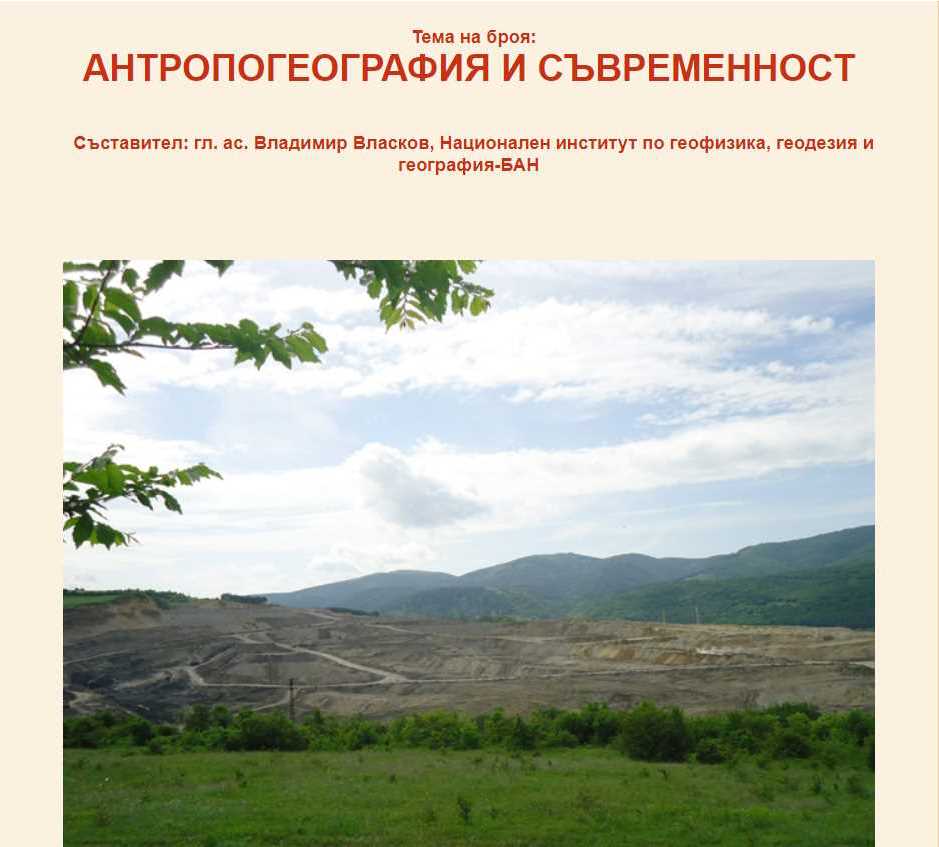
Anthropogeography is one of major branches in modern geography. Emerged at the end of 19th century in German geography, today it is wide spread in all geographic schools, though with different names: Anthropogeographie/Humangeographie, human geography, geografia humana, geographie humaine, социально-экономическая география, общественная география and so on. A plenty of definitions exists about its research subject: space-man relations, spatial organization of human actions, and spatial organization of society. In anthropology it is a branch dealing with geographic distribution of human beings. Anthropogeography went several periods of development depending on domination of leading paradigms, concepts and approaches. Accordingly an attempt will be made in this study to define the most important paradigms, respectively periods of modern anthropogeography: geodeterministic; spatial-scientific; possibilism; cultural landscape; functional phase; phase of social geography; scientism approach to economic and social geography; phase of behavior and decision making approaches; humanistic geography; qualitative social geography; oriented to action paradigm and so on.
More...
The study draws on contemporary views of anthropogeography and offers some new treatments on its interpretation and development. It presents the basis and superstructure of the new geography of the economy and the related changes in the spatial development of the settlement network and cultural landscapes. These changes form also the regional problems of society. From this perspective, anthropogeography may be deemed to form the regional geography of human society. The study examined the uneven distribution of population on the territory, the reasons for such distribution and its social, economic, demographic and cultural issues in relation to existing geographical environment and resources necessary to carry out policies. Analyzed through this prism anthropogeography is the science of humans forming their economic, social, ecological living environment, which should be managed so as to be sustainable over time and space.
More...
The article represents an attempt to outline thе areas in Eurasia, where the landscape and environment conditions supposedly were the most optimal for the development of ancient human communities of different ranks, including ancient human civilizations. By analyzing the contemporary natural and climatic conditions, as well as through paleo-landscapei reconstructions of the region of the Danube Valley (Lower Right Danube), a hypothesis of the existence of optimal living conditions for growth of the human population in this part of the Balkans and Europe is proposed, which area therefore is referred to as "ethnogenetic zone”.
More...
National Revival architectural and ethnographic complexes and sites are an essential part of Bulgarian national culture. The aim of this study was to analyze the spatial concentration of the main reserves and complexes of this type in the mountainous and hilly areas of the country. To achieve this aim are used cartographic and comparative geographic method (Arc GIS 92) and historical approach. As a result, a map of these sites is geographically identified cultural and historical localizations and major axes of the monuments of this age. An architectural and historical assessment of their importance for cultural tourism is done.
More...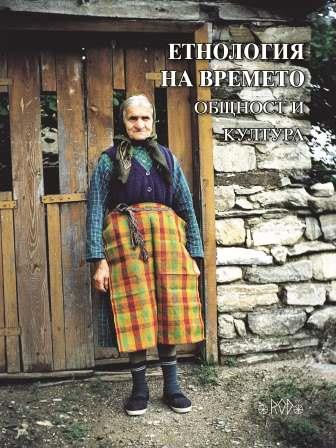
On the Balkan Peninsula, the crisis moments that were current in antiquity, forced people to organize adequate protection against the risks and dangers of that time. So, they themselves and also their material goods had a certain degree of security. All this was also characteristic of the territories that today include the municipalities of Shtip and Karbinci. Here, the population used various methods and ways in order to provide an adequate response to the security challenges they faced during this historical period.
More...
After almost 77 years of peace, the beginning of the 2022 was marked by the beginning of q new war on the European continent. It began with the use of the standard conventional military arsenal, after which some of the most advanced weapons of this type, technological achievements of the modern military industry, came to use. As a result of the military actions, the development of the word economy was seriously affected, but according to our observations, they also have an impact on the atmospheric circulation and specific climatic conditions. The direction of our research is based on the so-called “reasonable doubt” related to both the possibilities of using electromagnetic weapons (HAARP) and the direct effects of military actions (ecocide) with the release of a significant volume of dust particles into the atmosphere and combustion of huge quantities of gas from Russia.
More...
Changes in the climate, especially in temperatures, are increasingly noticeable, both on the territory of Bulgaria and in the Balkans. They are registered not only in the lowland-plain parts, but also in the mountainous and coastal areas. The focus of the study is the cases of manifestation of a compensatory mechanism in the temperature regime. It is observed in years with a distinct distinct colder or hotter-than-average-static season. The research period covers the last 30 years.
More...